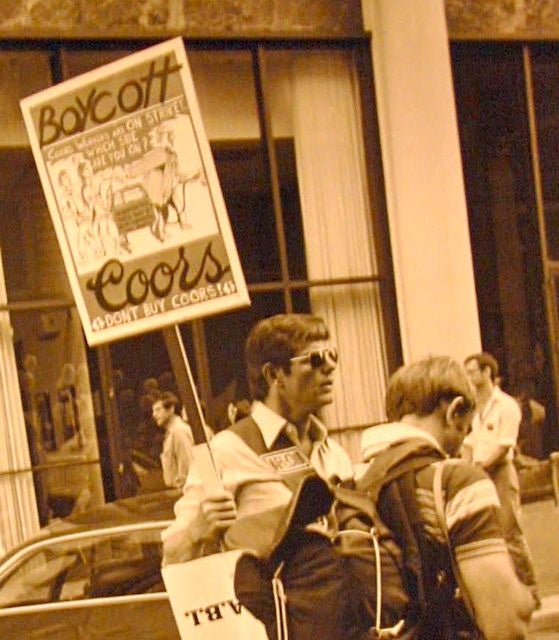Uncategorized
Teamsters Pride At Work: A Look Back At The Coors Boycott

June is Pride Month, a time to honor the fight against prejudice and discrimination experienced by LGBT people. So it’s worth noting that when it comes to labor movement solidarity with gay rights, it all began with the Teamster boycott of Coors beer in the late 1970s.
That’s the way Nancy Wohlforth sees it. She’s the longtime, now-retired Secretary-Treasurer of the Office and Professional Employees and co-founder of Pride At Work, the AFL-CIO’s constituency group for lesbian-gay-bisexual-transgender people.
At a book event this month, Wohlforth remembers how LGBT unionists had been marginalized, or worse, by other union members. One example of this was an anti-gay resolution at the 1972 Steelworkers convention that got a standing ovation.
But it was the Coors beer boycott that galvanized LGBT union members to assert their role in the labor movement, Wolhforth said.
The Coors boycott represented an historic partnership between Teamsters and the LGBT movement. It began in 1977 in part as a response to the company’s 178-question employment application form, Wohlforth explained:
One question demanded: ‘Are you a homosexual?’ If you answered ‘yes,’ that terminated your application. Another demanded ‘Are you pro-union?’ If you answered ‘yes,’ that terminated you, too.
The LGBT community found its opening when the Teamsters in San Francisco began organizing Coors distributors.
Allan Baird, then-president of Teamsters Local 921, along with local organizers like Howard Wallace, an openly gay Teamster truck driver, understood the power of the LGBT community in the Bay Area. Organizers approached a gay distributor who in turn approached colleagues and political activists – most notably the late city supervisor Harvey Milk, who was later murdered by a right-winger because he was gay.
The result was a gay bar beer boycott of Coors organized by a new labor-LGBT alliance. And it worked, said Wolhforth:
The gay bartenders marched out with the bottles of beer and dumped them in the sewers. Coors was anti-gay, and racist and anti-Latino. And to this day, you can’t find Coors in a gay bar in San Francisco.
The beer boycott woke other union groups up to the power of the gay community and its organizing talents, Wohlforth explained.
Other campaigns, with gays allied with unions, followed. One, in California, saw the teachers unions and the city labor council organize to beat an anti-gay initiative.
These victories didn’t bring automatic acceptance for LGBT workers within the labor movement. The LGBT community realized it needed its own AFL-CIO constituency group, so its representatives – Wohlforth and others – started touring the country, talking to local unions and labor councils and promoting equal rights for all, including LGBT members.
It took many years for Pride At Work to finally be granted a charter and a founding convention. “We knew we needed labor on our side,” Wohlforth said.
- Press Associates, Inc. contributed to this report